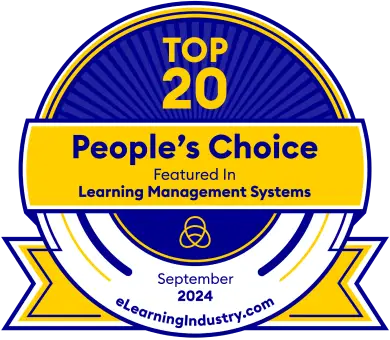Platforms like Expert LMS are designed with data protection in mind, providing features that help organisations adhere to best practices and legal requirements. Here are the seven key principles of effective data protection that every LMS administrator should follow.
1. Lawfulness, Fairness, and Transparency
The first principle requires that data is processed lawfully, fairly, and in a transparent manner. This means LMS administrators need to ensure that data collection and processing have a legitimate basis and that users are informed about how their data is being used. Platforms like Expert LMS provide transparent privacy policies and user consent mechanisms to help organisations stay compliant and build trust with users.
2. Purpose Limitation
Data collected should only be used for the specific purposes for which it was gathered. LMS administrators must clearly define the purpose of data collection and avoid using the data for unrelated activities without user consent. Expert LMS allows administrators to set clear data usage policies and ensure that data is only accessed for intended purposes, enhancing data security and compliance.
3. Data Minimisation
The principle of data minimisation requires that only the data necessary for a specific purpose is collected and processed. LMS administrators should avoid collecting excessive information and ensure that all data held is relevant to the intended training and learning objectives. Expert LMS enables customisable data fields, ensuring that only essential information is gathered during the onboarding or registration process.
4. Accuracy
Data accuracy is vital for maintaining the integrity of information stored within an LMS. LMS administrators must ensure that personal data is kept up-to-date and correct. Inaccurate or outdated information can lead to problems in managing learner progress and compliance records. Expert LMS provides tools for users to update their own information and for administrators to periodically review data, helping to maintain accuracy across the platform.
5. Storage Limitation
The storage limitation principle states that personal data should only be kept for as long as necessary to fulfil its intended purpose. LMS administrators should implement policies to regularly review and delete data that is no longer needed. Expert LMS allows for automated data retention schedules, ensuring that data is securely disposed of once it is no longer required, reducing the risk of data breaches and ensuring compliance with data protection regulations.
6. Integrity and Confidentiality
Integrity and confidentiality are critical to protecting the data within an LMS. LMS administrators must take appropriate security measures to prevent unauthorised access, alteration, or destruction of personal data. Expert LMS provides robust security features, such as encryption, access control, and secure user authentication, to ensure that sensitive data is protected at all times.
7. Accountability
The final principle of data protection is accountability, which requires LMS administrators to take responsibility for compliance with data protection principles and be able to demonstrate their efforts. This includes maintaining records of data processing activities, conducting regular audits, and implementing training for staff members on data protection best practices. Expert LMS helps administrators generate compliance reports and offers audit trails to demonstrate adherence to data protection policies.
Conclusion
Effective data protection is crucial for LMS administrators, especially as more personal data is collected and processed through online learning platforms. By adhering to these seven key principles—lawfulness, fairness, and transparency; purpose limitation; data minimisation; accuracy; storage limitation; integrity and confidentiality; and accountability—administrators can ensure that they are safeguarding user information and maintaining compliance with data protection regulations.
Platforms like Expert LMS are designed to support these principles, offering the tools and courses needed to implement best practices and maintain the trust of learners and clients. Investing in a secure LMS solution with built-in data protection features is an important step towards creating a safe and compliant learning environment for everyone involved.








